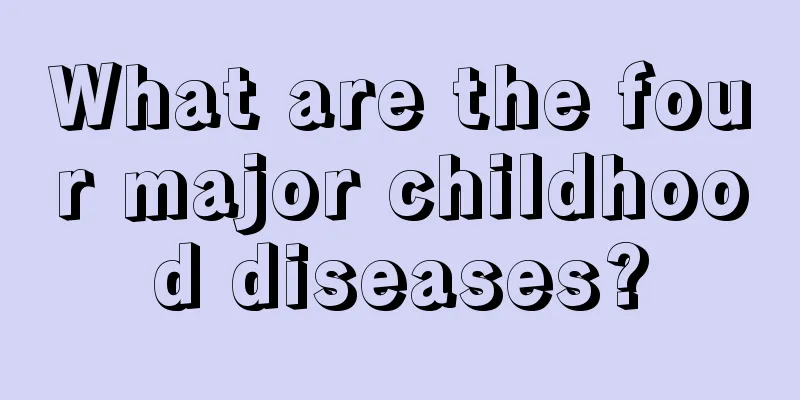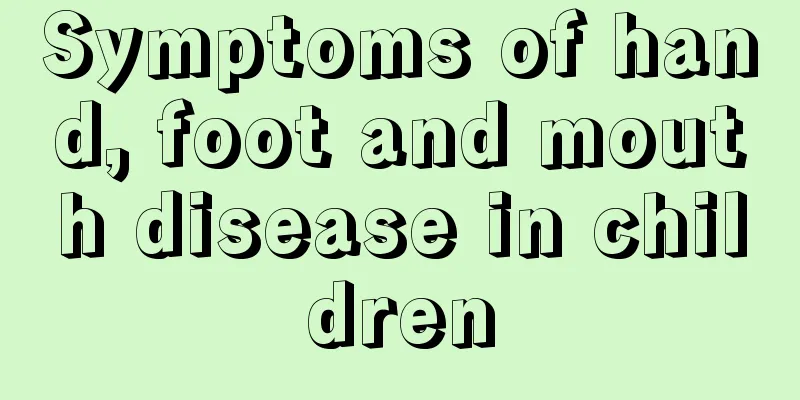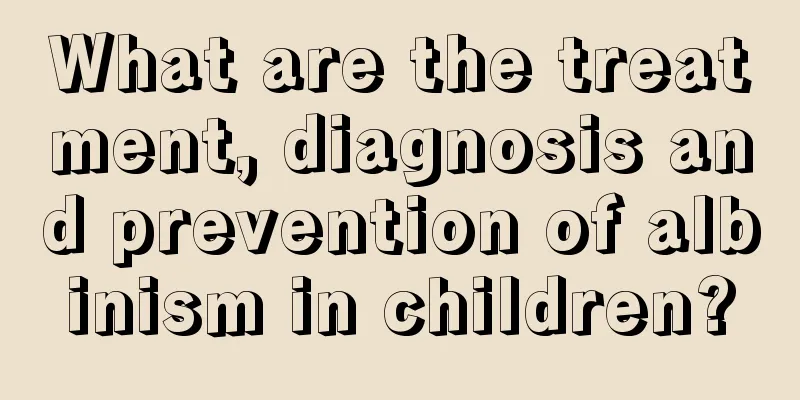What are the four major childhood diseases?

|
For young children, because their immune function is not yet fully developed, they are easily affected by some diseases at this time. Children are prone to many diseases, the most common of which is respiratory tract infection, which often leads to pneumonia. In addition, diarrhea is also common in children. In addition, due to physical constitution, they are also prone to some allergic diseases. Let's take a look at the four major diseases in children. What are the four major childhood diseases? 1. Acute upper respiratory tract infection Acute upper respiratory tract infection, commonly known as "cold", is a common disease in children, more than 90% of which is caused by viral infection. Common manifestations include respiratory symptoms such as cough, runny nose, fever, etc. Some affect the digestive tract, causing vomiting, diarrhea, abdominal pain, etc. The above symptoms may appear alone or simultaneously. When children have a cold, their body temperature is usually very high, reaching 39℃~40℃, but their mental state is relatively good. 2. Diarrhea It mostly occurs in infants and young children aged 6 to 24 months. The onset is acute, and the main manifestation is frequent diarrhea. The stool is characterized by "three mores": frequent diarrhea, large amount, and high water content. The stool is yellow watery or egg drop soup-like. Sometimes accompanied by vomiting, loss of appetite, pain, fever and other symptoms. The course of the disease is about 3 to 8 days. After the onset of the disease, attention should be paid to dietary treatment: breastfed babies should continue breastfeeding and stop feeding complementary foods; bottle-fed babies can be fed an equal amount of rice soup or diluted milk. Those with severe vomiting can temporarily fast for 4 to 6 hours, but they cannot stop drinking water. 3. Allergic diseases Every autumn, there are always a lot of young patients with allergic rhinitis in the outpatient clinic. This is because the weather is dry in autumn, and various allergic factors are easily produced and spread everywhere, irritating children's nasal mucosa and causing allergic rhinitis. Sometimes the dust and powder pollution in the air is serious, and children are more likely to suffer from seasonal allergic rhinitis. If a child sneezes more than ten or twenty times in a row, has severe nasal congestion, clear nasal discharge, and may also have symptoms such as headache, he or she has most likely become a prisoner of allergic rhinitis. 4. Asthma Asthma often occurs when the climate changes suddenly. The incidence of asthma varies greatly in different seasons. For example, in April, May, September and October every year, the temperature fluctuates greatly and the number of asthma cases also increases significantly. It can be seen that the incidence of asthma is closely related to climate. Sudden climate change is a stimulus to the human body, which can affect the nervous, endocrine and immune functions, thereby triggering asthma. Children have poorer adaptability to sudden changes in external temperature and are therefore more susceptible to illness. Typical symptoms of asthma are cough, chest tightness, wheezing, and wheezing during exhalation. Childhood asthma has specific diagnostic criteria and should be treated long-term once diagnosed. |
<<: What to do if your child has bloating or stomach pain
>>: Children have a fever at midnight
Recommend
How to have a boy
Although it is the same whether you have a boy or...
Can I have a blood test if my baby has diarrhea?
When babies have diarrhea, they generally do not ...
How to avoid scars after burns
Whenever the skin is damaged in life, scars will ...
How to supplement the baby's anemia?
If the baby keeps suffering from anemia, it will ...
How to train premature babies to prevent cerebral palsy
Cerebral palsy is a neurological disease of the b...
What’s going on if my baby’s tongue turns green?
The baby's physical health is extremely fragi...
What should a 6-year-old child with intellectual disability eat?
Children aged six have intellectual retardation. ...
Why do children get rashes? Common types of rashes in children
There are many diseases that may cause skin aller...
Child's chest pain
Don’t think that only adults have heart problems....
What fruit is better for children to eat when they have a cough?
Children are a high-risk group for colds because ...
How to prevent children's chapped skin and what to do if children have chapped skin?
Children's skin problems are not only related...
Causes of diarrhea in five-month-old babies
It is a common phenomenon for 5-month-old babies ...
Why do children lose their hair?
We adults lose hair every day, but children hardl...
How to take care of a newborn baby
Newborn babies need our care, because they cannot...
What to do if your child grinds his teeth
It's not just children. In fact, many adults ...









